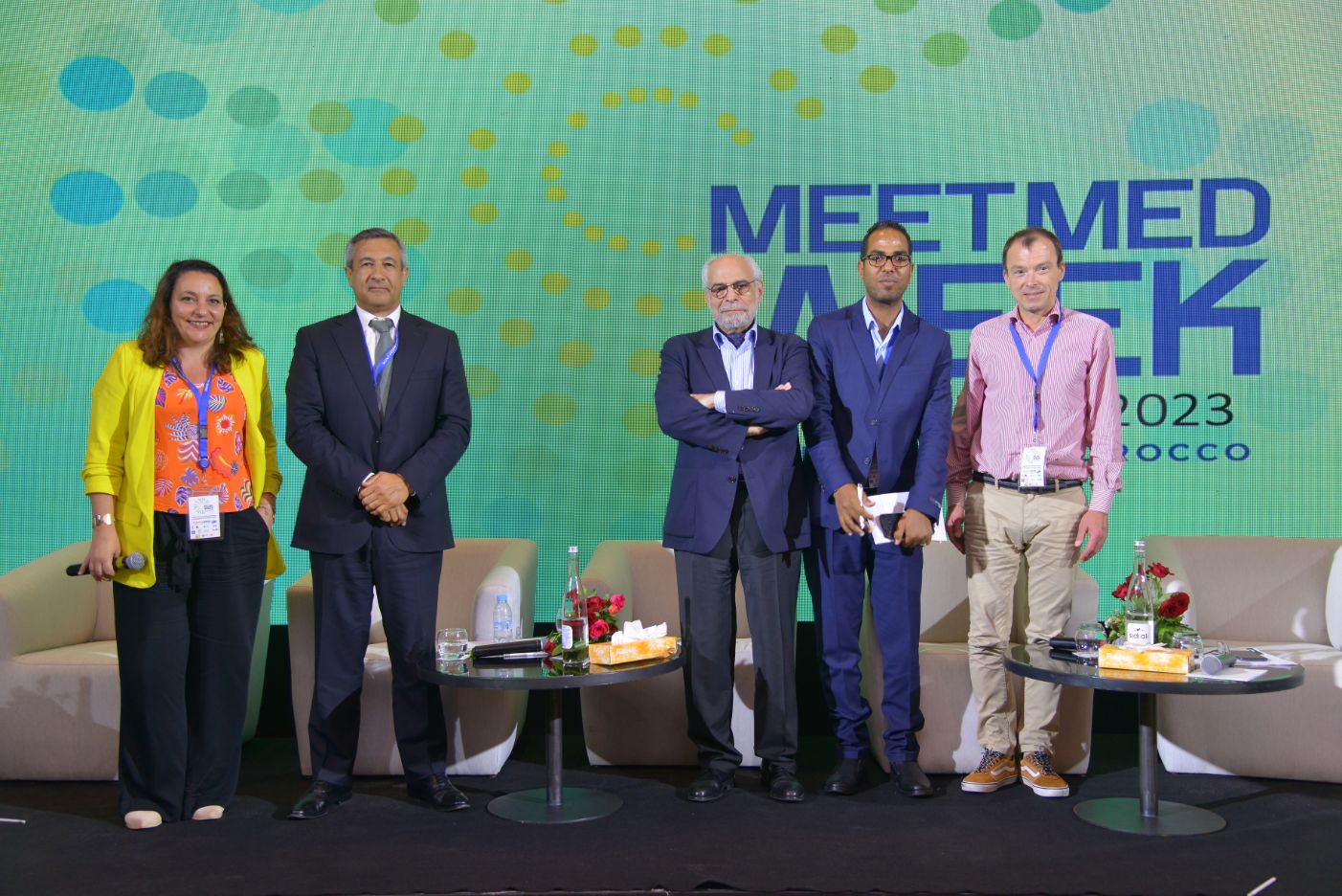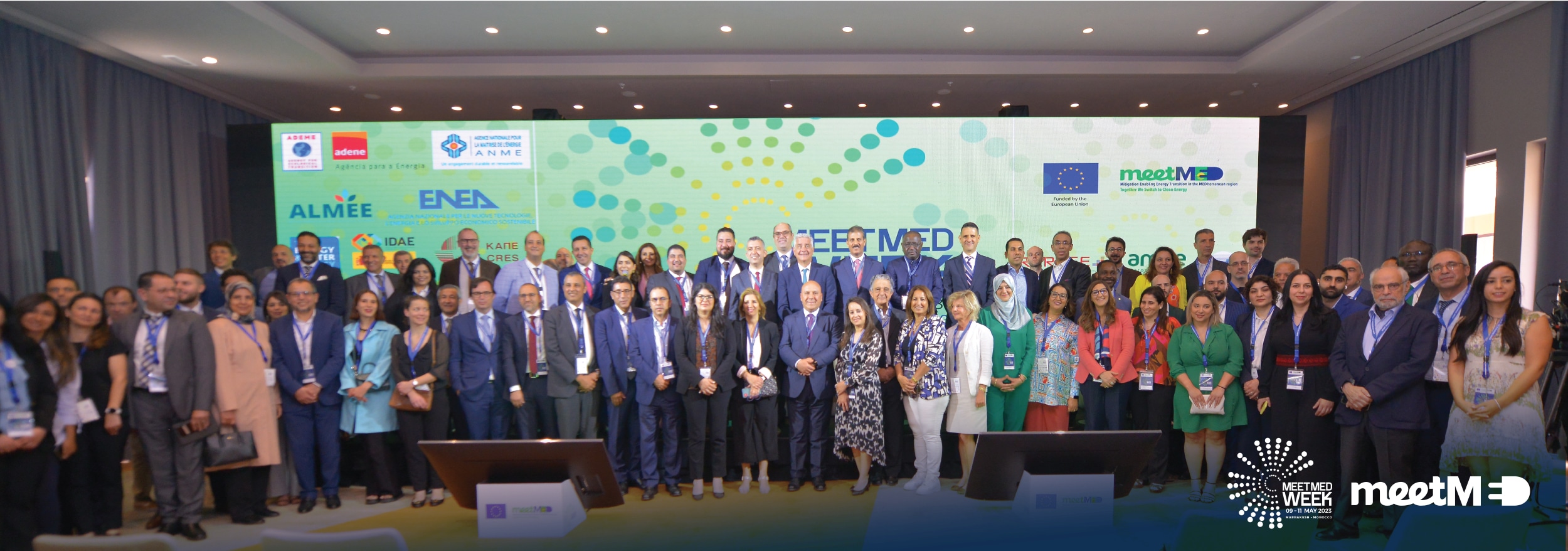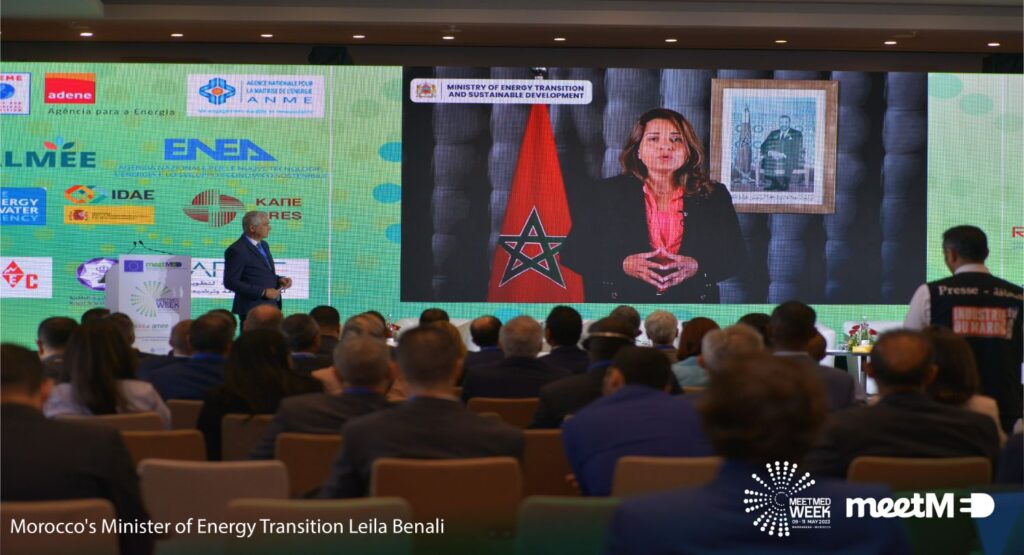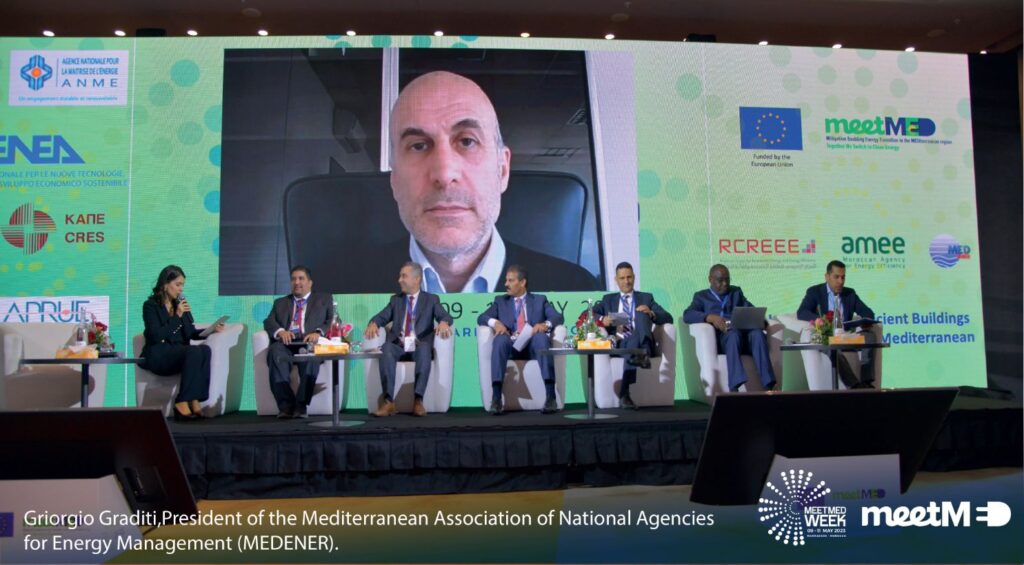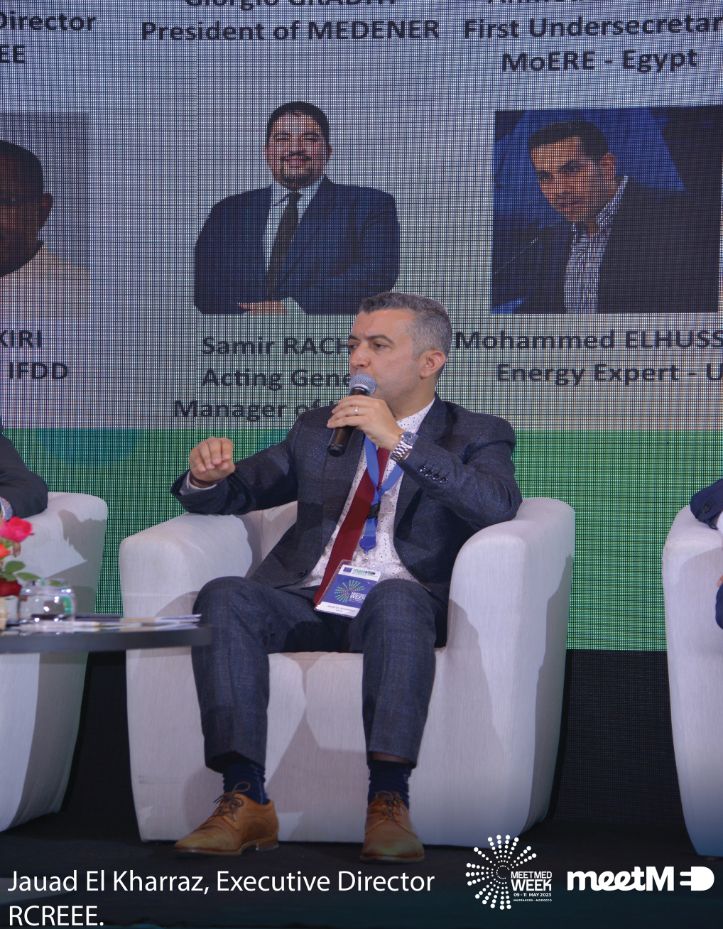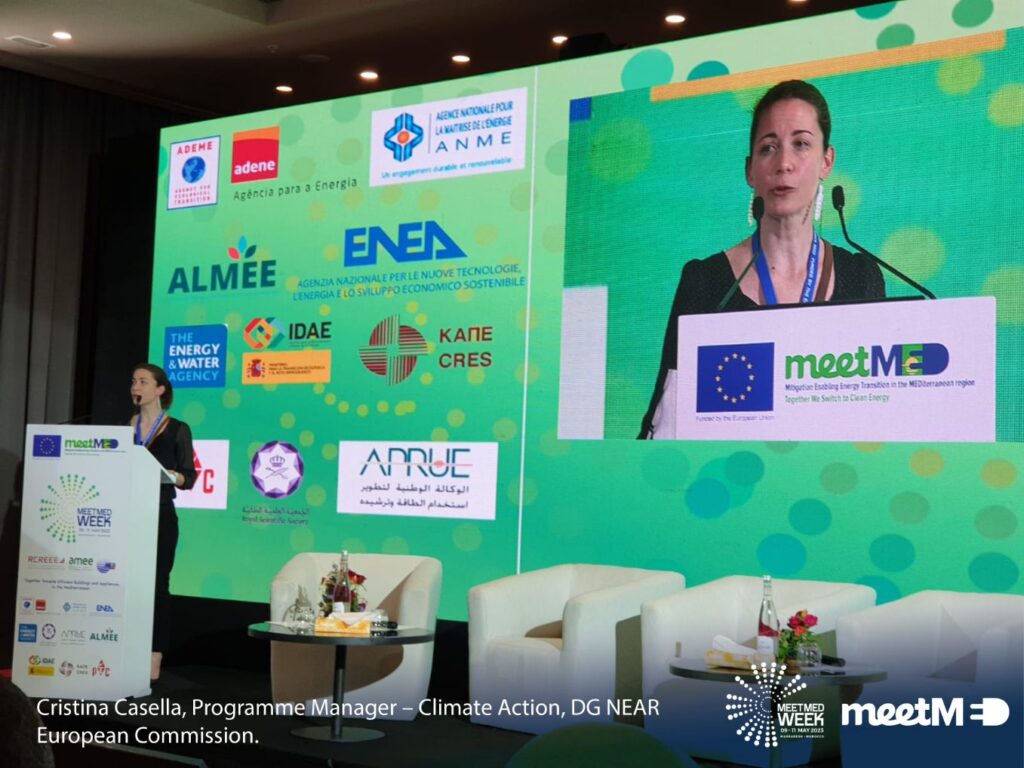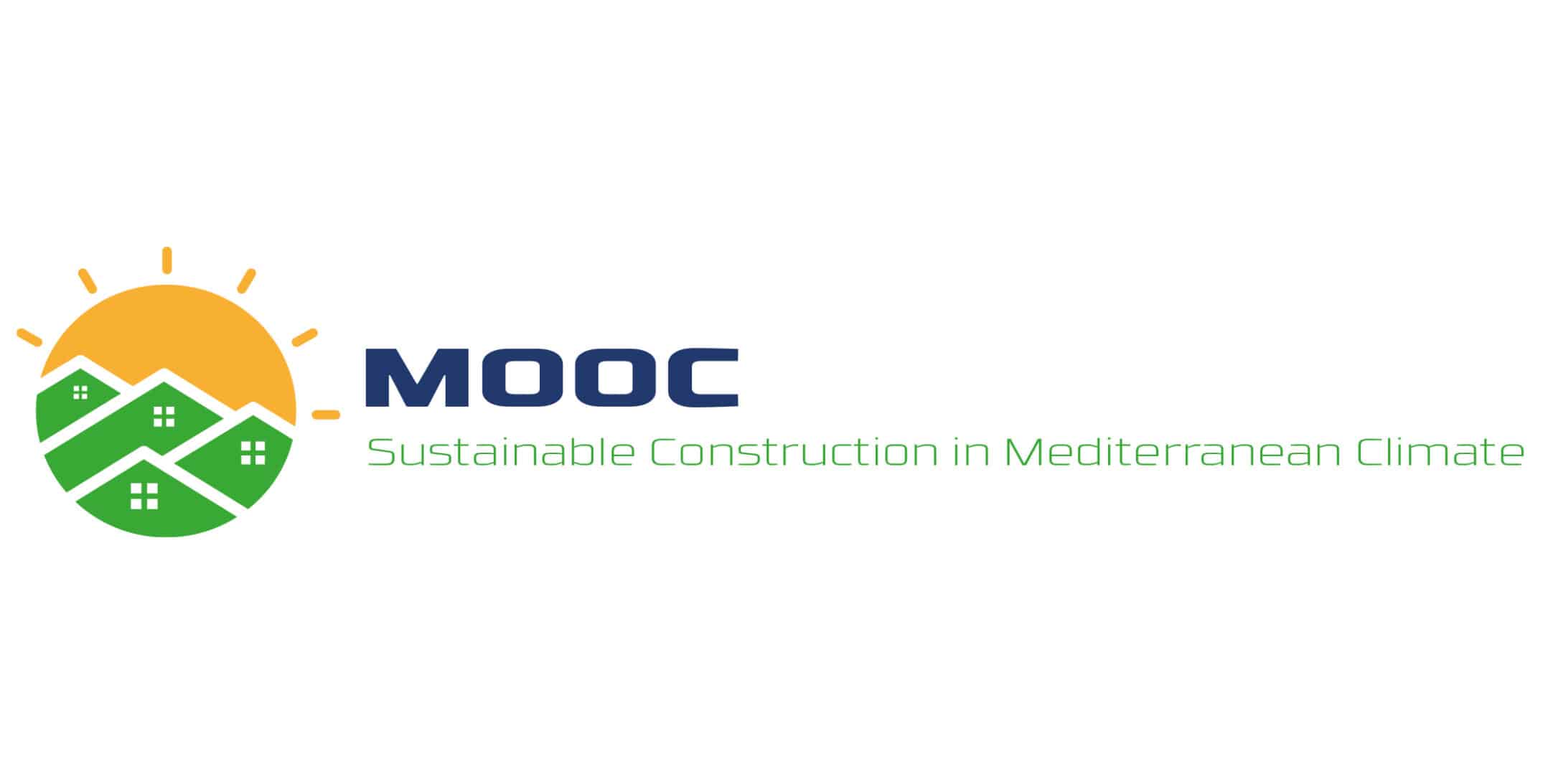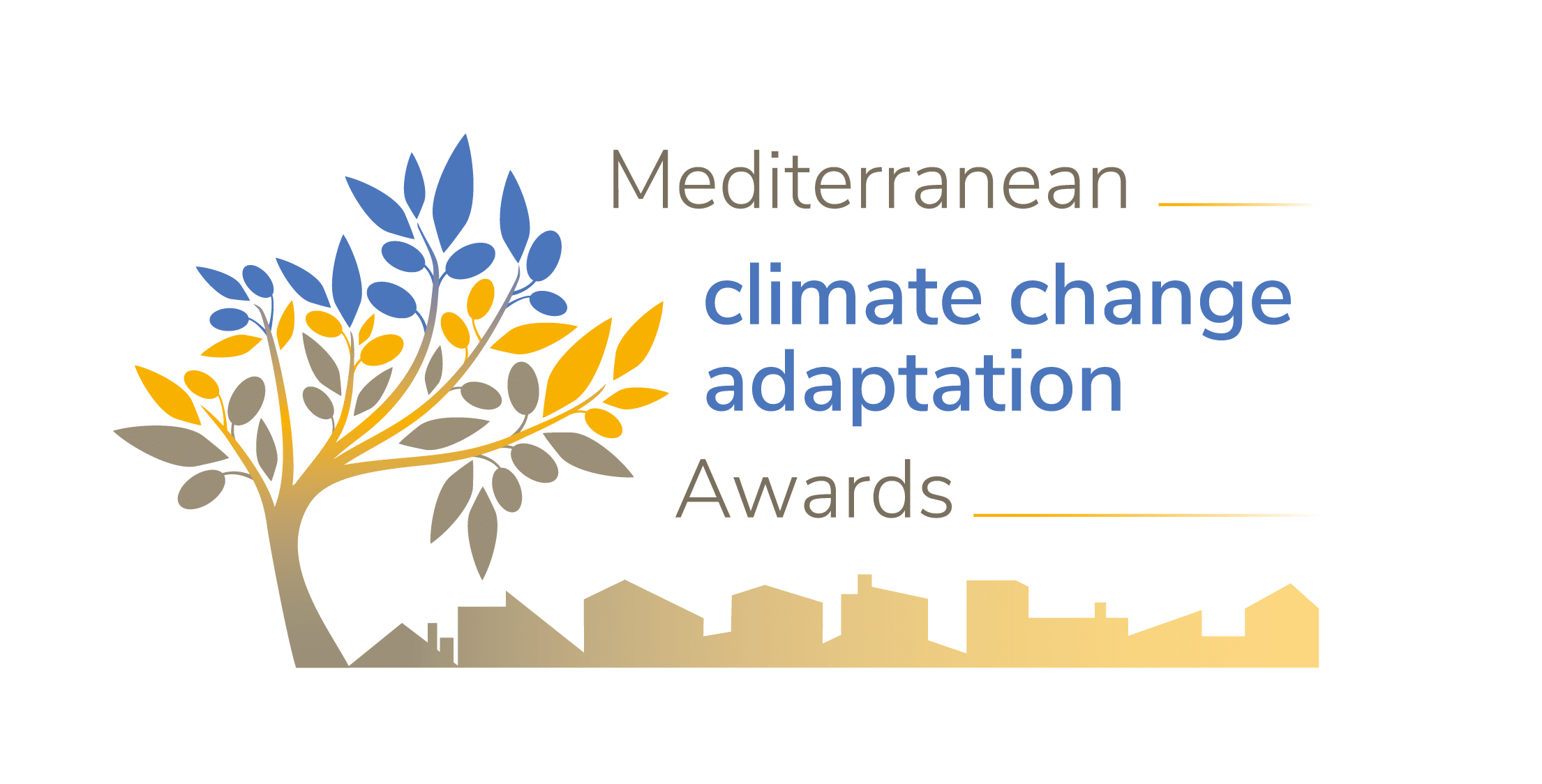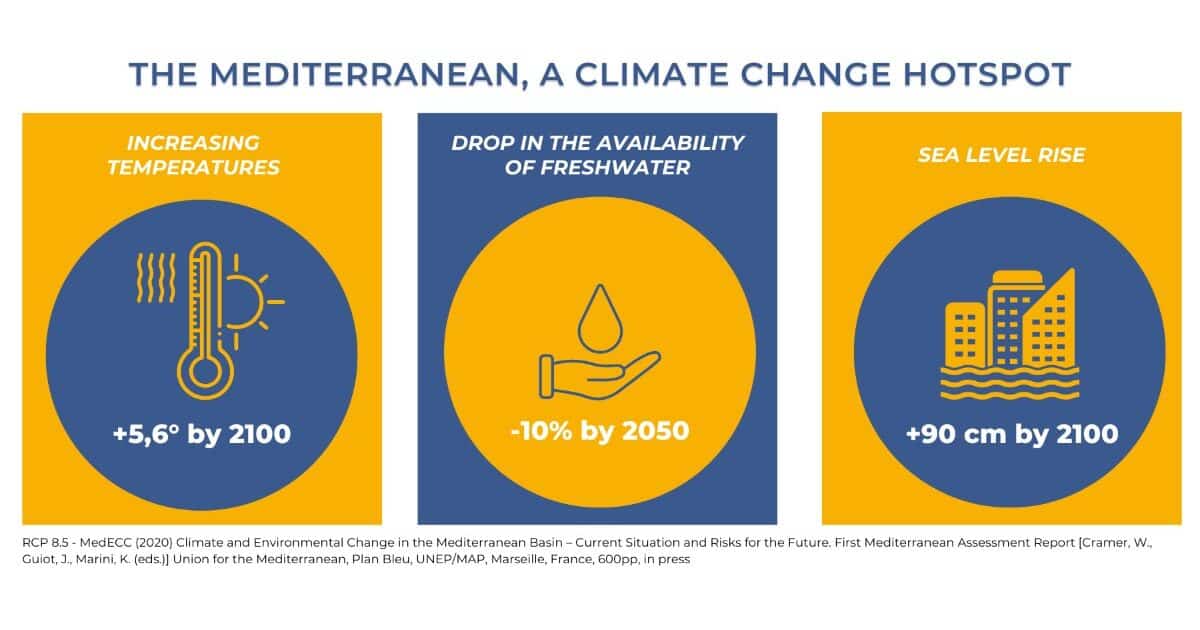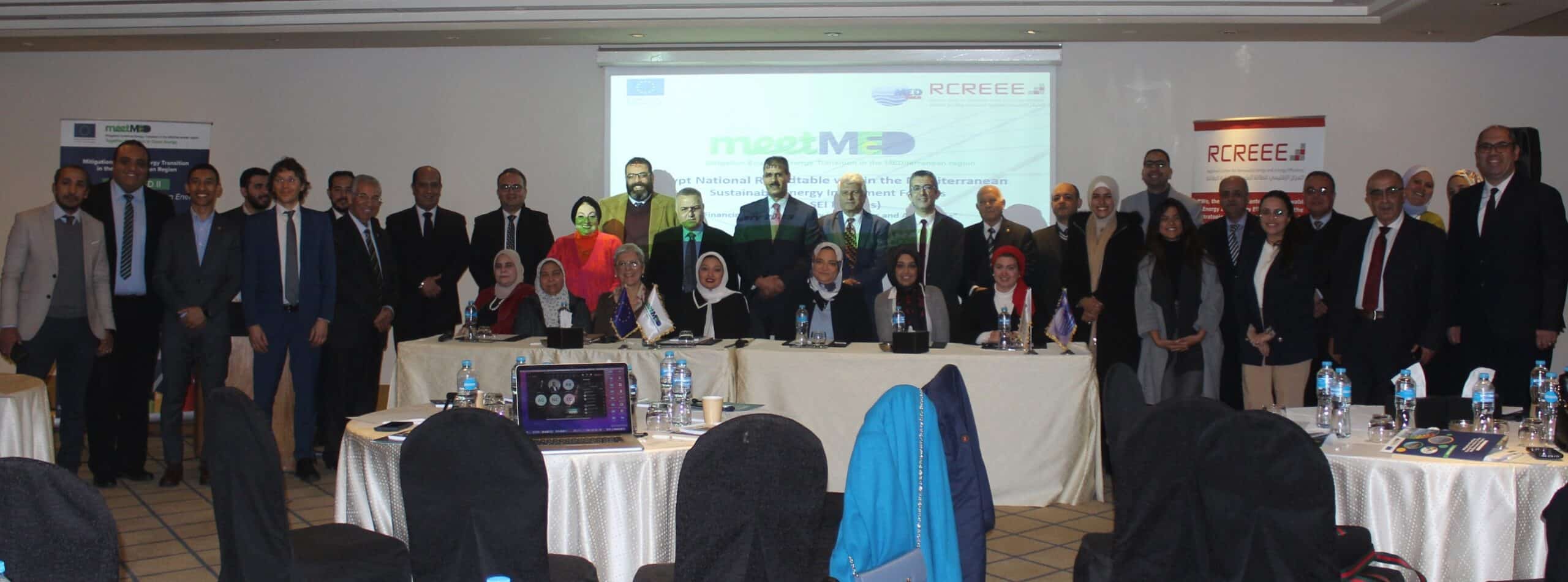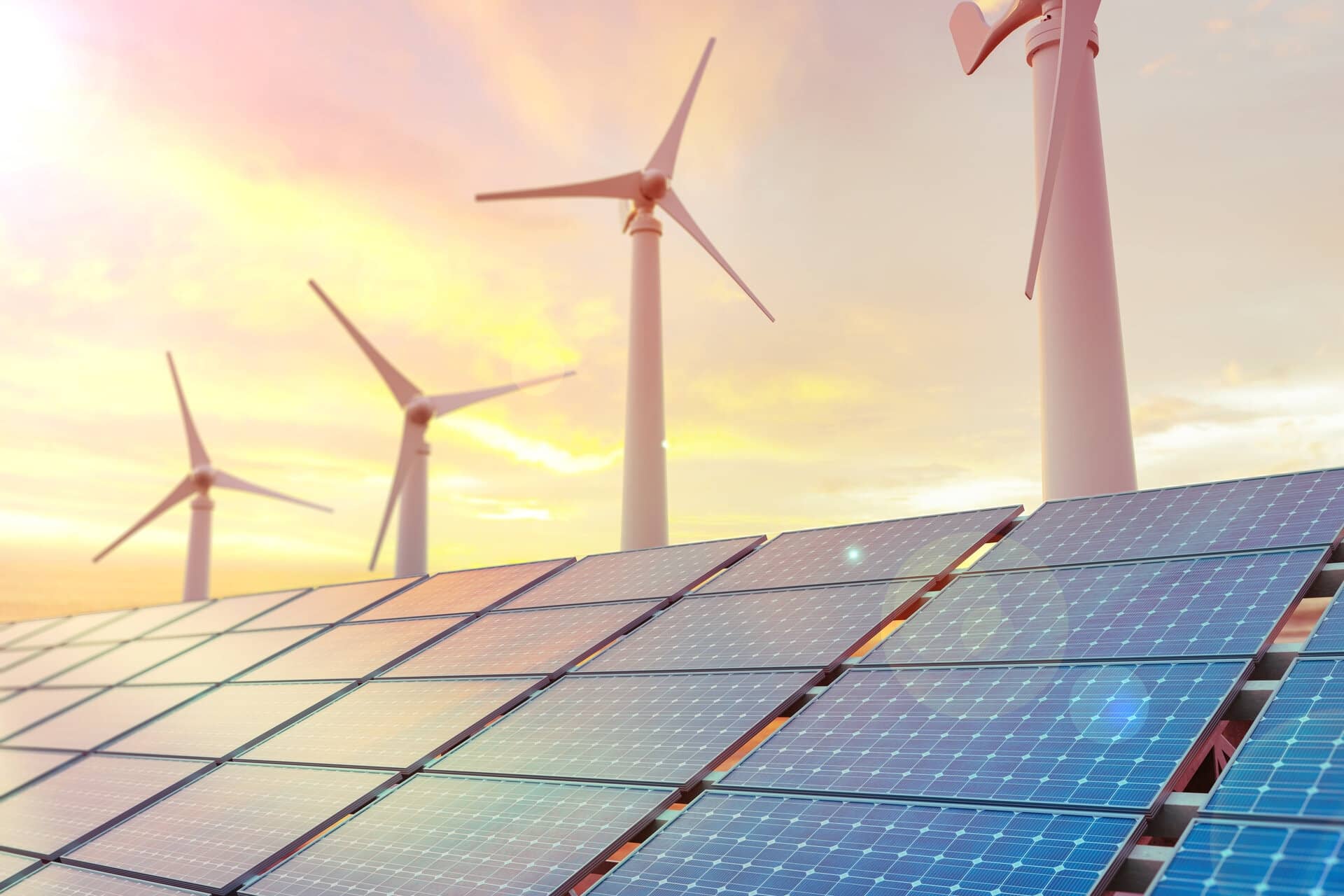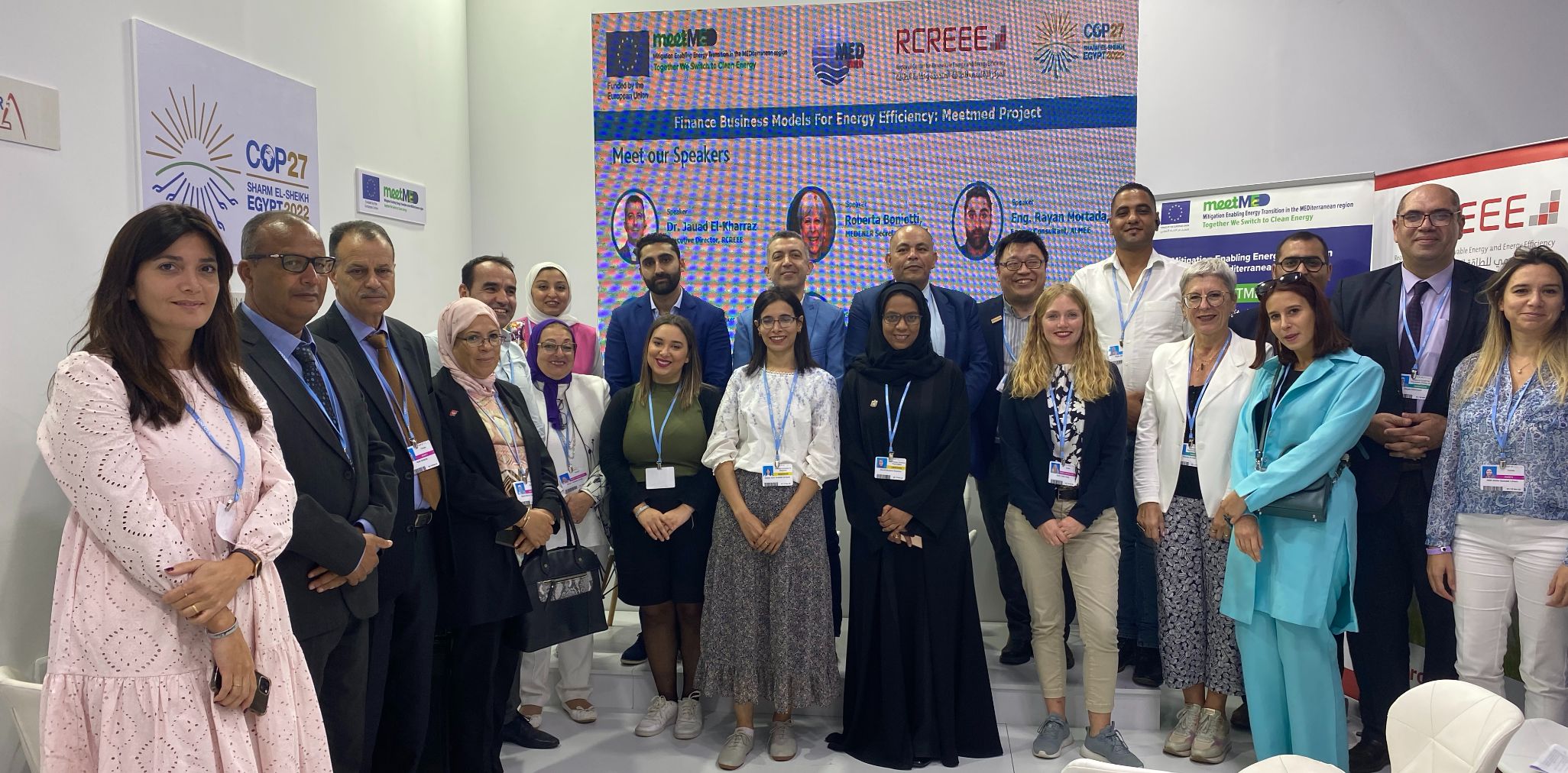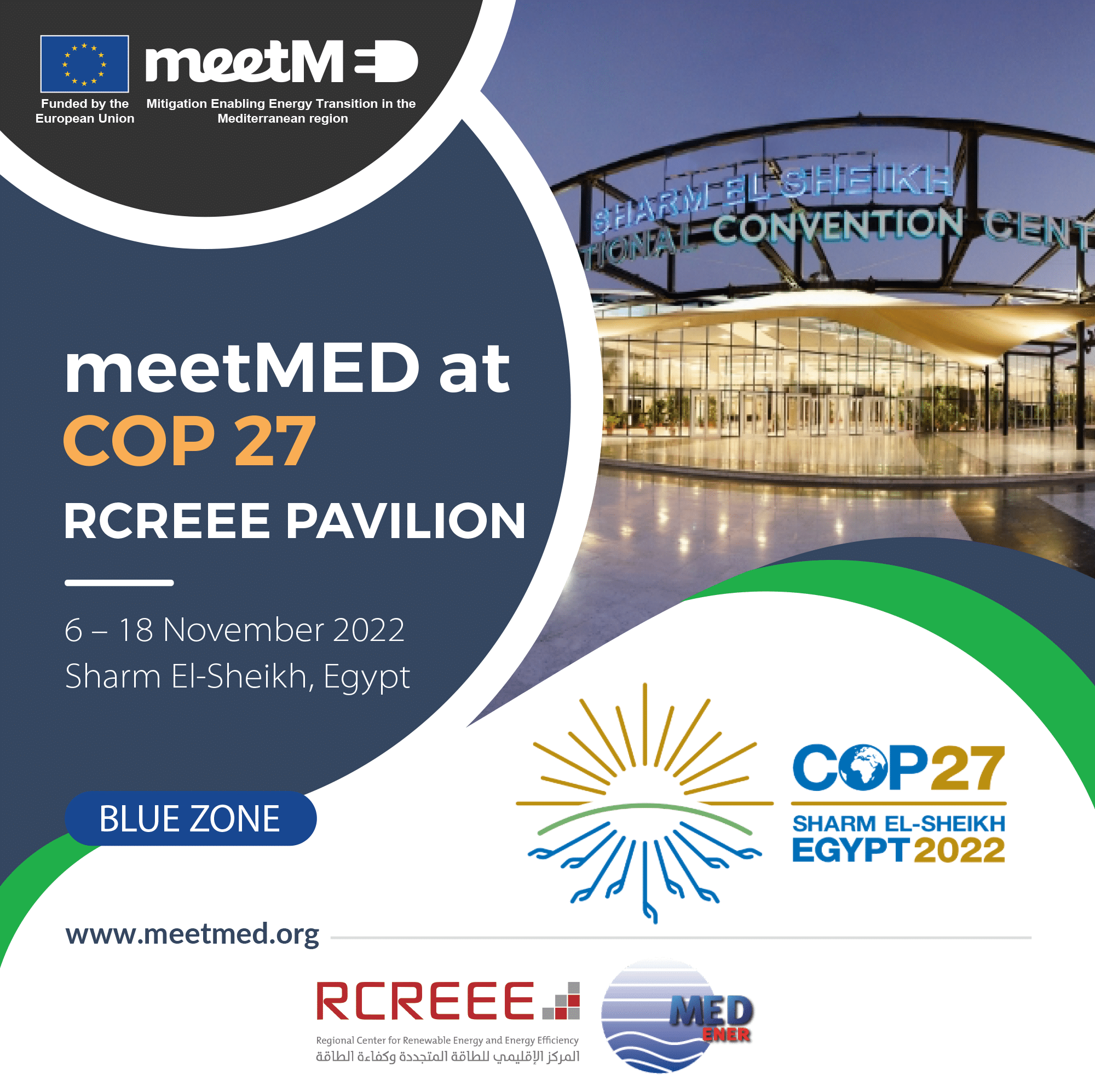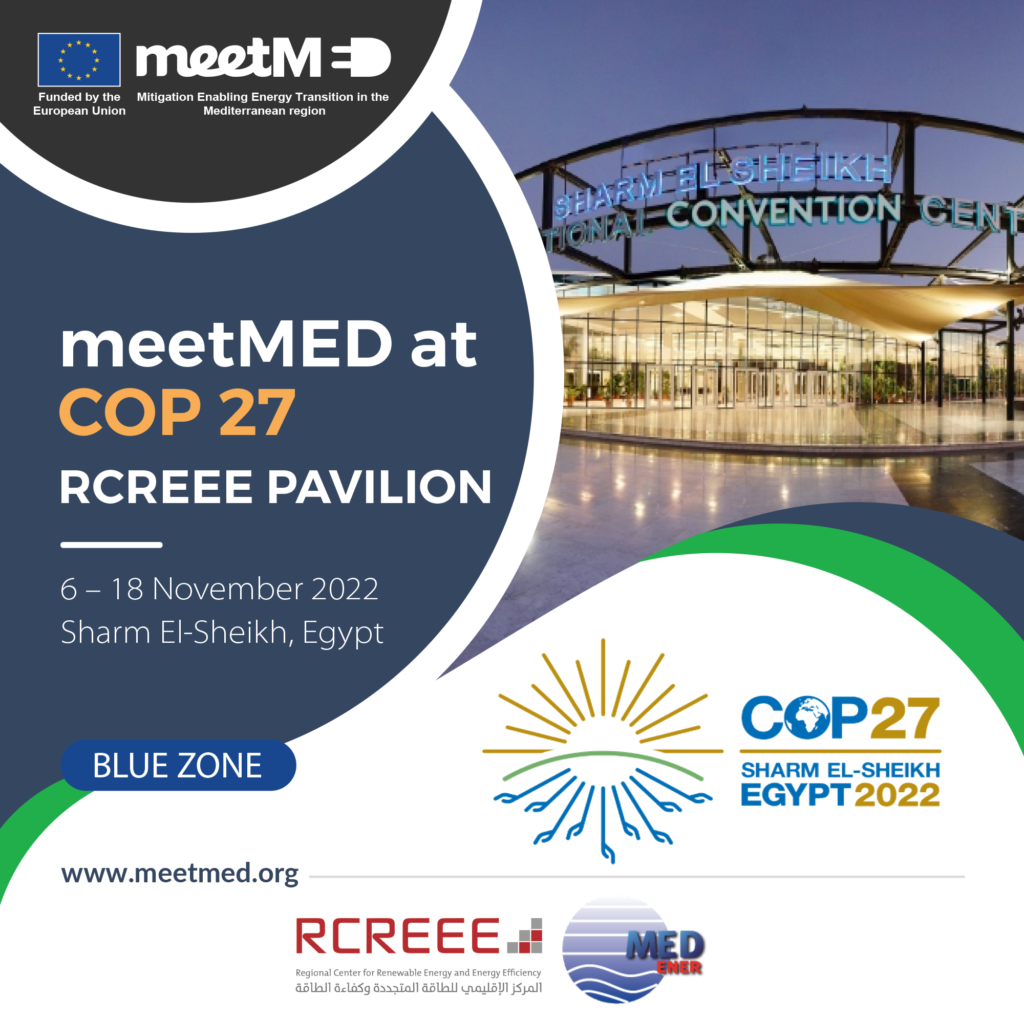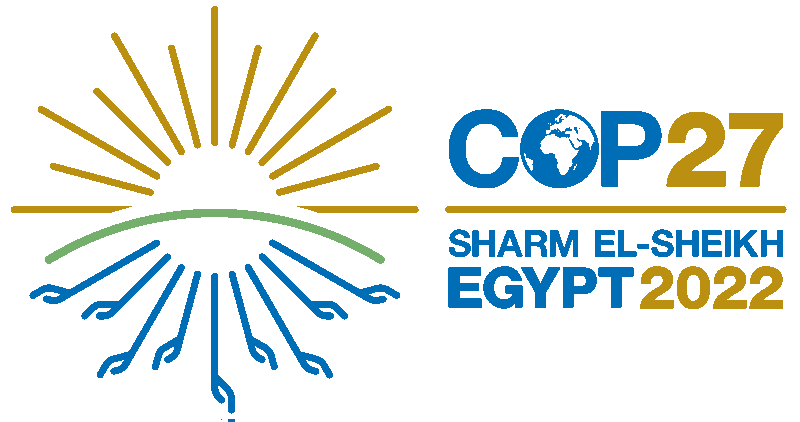Cairo – February 2023
The Egyptian round table held within the Mediterranean Sustainable Energy Investment Forum called for the need to strengthen the financing mechanisms of renewable energy projects and reduce the risk perception of banks in this important sector.
The launching of the Egyptian network for sustainable energy investments came during the national round table held in Cairo under the meetMED project – funded by the European Union and implemented by the Regional Center for Renewable Energy and Energy Efficiency (RCREEE) and the Mediterranean Association of National Agencies for Energy Management (MEDENER).
During the opening remarks, Cristina Casella, Programme Manager – Climate Action, DG NEAR, European Commission said “The EU has been a long-term partner to the southern Mediterranean region promoting and supporting the shift towards a more resource efficient, low carbon and sustainable economy. The EU also supports various bilateral and regional cooperation programmes as well as blending facilities which combine grant funding with loans. Through these mechanisms, the EU supports partner countries in implementing concrete energy efficiency measures in key sectors buildings but also others such as industry and transport.
Roberta Boniotti the Secretary General of MEDENER added “Engagement and integration between international, regional, national and local stakeholders is necessary to harmonize, align, synergize and multiply the respective impact. By launching the meetMED SEI Forums initiative with regional and national roundtables, we expect to engage the stakeholders in a permanent dialogue, which is really very important to stimulate the exchange of information, to improve the harmonization and monitoring regulations and standards in the sectors of buildings and appliances and mainly to facilitate and enhance access to finance”.
From his part, Dr. Jauad El Kharraz, the Executive Director of the RCREEE underlined “The Center’s support for all possible aspects to enhance all Arab countries, including Egypt, for the transformation of sustainable energy systems and energy efficiency applications.
Dr. Maged Mahmoud, the Technical Director of RCREEE also highlighted “The Center aims to establish a banking finance network for renewable energy projects by assisting banks to obtain all the information and terminology that enables them to deal with renewable energy projects so that we can reduce the number of risks banks place to finance such projects. Noting that there are over 35 banks in Egypt, but a limited number of banks that finance energy projects”.
Representing the Egyptian Ministry of Electricity and Renewable Energy, Dr. Ahmed Mohina, the First Undersecretary (MoERE) mentioned that “Egypt has a clear strategic plan to shift towards renewable energy and increase its contribution to the national electricity grid. Furthermore, energy efficiency funding mechanisms, including the Energy Efficiency Fund, are being activated in addition to specialized committees to operationalize the energy efficiency code in the building sector.
Dr. Mohamed Mousa Omran, the Executive Director of EgyptERA emphasized on the importance of having an institutional setup of the energy efficiency unit among the country. In addition to fostering international cooperation and capacity building programs and the role of Energy Service Companies (ESCO’s) in implementing national energy efficiency plans.
Presenting the concept of Sustainable Energy Investment Forums, Dr. Edoardo Pandolfi, Task Leader at ENEA stated that “This national round table taking place today in Cairo is part of a series of 5 national roundtables organised within the MED SEI Forums. These events aiming at facilitating dialogue between financial sectors, public authorities and all other stockholders that are involved in delivering investments in sustainable energy. In addition to setting up an example to be replicated by the other countries”.
Addressing the gap between the building sector sustainable strategies and the available financing mechanisms, Dr. Hend Farouh, the Project Manager of Egypt PV, funded by UNDP-Egypt showcased the key insights of solar plant piolet projects in buildings sector implemented under the Egypt PV highlighting the total CO2 emission reduction and the long-term return on investments. Farouh added “There is a marked rise in the turnout of citizens and owners of small and medium enterprises on solar energy. Many training programmes have been offered to young people and some have been observed setting up private solar power plant companies. They have been assisted in the formal accreditation of their companies to the competent authorities”.
Given the importance to the role of sustainable finance in advancing sustainable energy investments, Dr. Walaa Elshafee, the Head of Sustainability and E&S systems at CIB Egypt, presented the key pillars of the CIB’s sustainable finance policy addressing the Bank’s economic, environmental, social, and governance (EESG) impact.
Dr. Yosra Assaker, Sustainable Energy Expert at the World Bank mentioned that “There is a significant funding gap to sustain the green shift in energy uses as government plans require $113 billion in investment to reduce emissions by 67%”.
Highlighting the potential of carbon markets in Egypt, Dr. Hesham Eisa, the General Manager of D-Carbon Egypt said that “Egypt can play a major role in the global carbon market and can encourage the private sector to implement plans to reduce carbon emissions”.
For more information and media inquiries, please contact:
Ms. Asmaa Ahmed – meetMED Communication Manager
Email: asmaa.ahmed@rcreee.org


